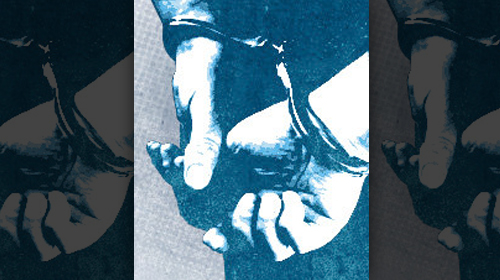
Today, the U.S. has the highest incarceration rate of any country in the world. With over 2.3 million men and women living behind bars, our imprisonment rate is the highest itÔÇÖs ever been in U.S. history. And yet, our criminal justice system has failed on every count: public safety, fairness and cost-effectiveness. Across the country, the criminal justice reform conversation is heating up. Each week, we feature our some of the most exciting and relevant news in overincarceration discourse that weÔÇÖve spotted from the previous week. Check back weekly for our top picks.
The University of San Francisco School of Law released a report that compares U.S. sentencing practices with those of other nations. The report finds that America utilizes mandatory minimums, habitual offender statutes, life without parole and consecutive sentencing in more severe ways than most of the developed world, and proposes that our mass incarceration problem is tied to our sentencing policies.
Alabama Gov. Robert Bentley signed a law that will allow the stateÔÇÖs sentencing commission to set punishment standards for non-violent crimes that judges generally would have to follow. Under the new law, sentencing changes for nonviolent crimes made by the commission and presented to lawmakers before each year's regular legislative session will take effect in the fall following each session unless the Legislature passes a law rejecting the changes.
Louisiana Gov. Bobby Jindal signed two pieces of legislation on May 17 to increase prosecutorial discretion, increase parole eligibility for non-violent offenders and ensure the effective use of administrative sanctions to more quickly punish offenders who violate terms of their supervision. The first bill ensures the effective use of non-prison sanctions for persons who violate conditions of probation and parole. The second bill allows second-time non-violent, non-sex offenders to become parole eligible after serving 33 percent, rather than 50 percent, of their sentences. This bill only gives the offender a hearing before the Parole Board, and does not guarantee they will be released from prison.
Learn more about overincarceration: Sign up for breaking news alerts, , and .
The New Orleans Times-Picayune recently issued the final installment of its excellent eight-part series on LouisianaÔÇÖs criminal justice system, which incarcerates a higher percentage of its citizens than any other state. The reports look at the financial incentives that hinder sentencing reform, the stateÔÇÖs severe habitual offender laws, the state of reentry programs, and the neighborhoods that have been most effected by mass incarceration.
Pennsylvania Gov. Tom Corbett wants corrections reform to happen, and soon. The call for fast-track reform comes on the heels of recommendations from the stateÔÇÖs Justice Reinvestment Working Group, whose proposals project to save the state $263 million. Some of the savings could be sent to counties for improved policing and probation at the local level, or counties that reduce the number of people they send to prison with less than one year to serve.
